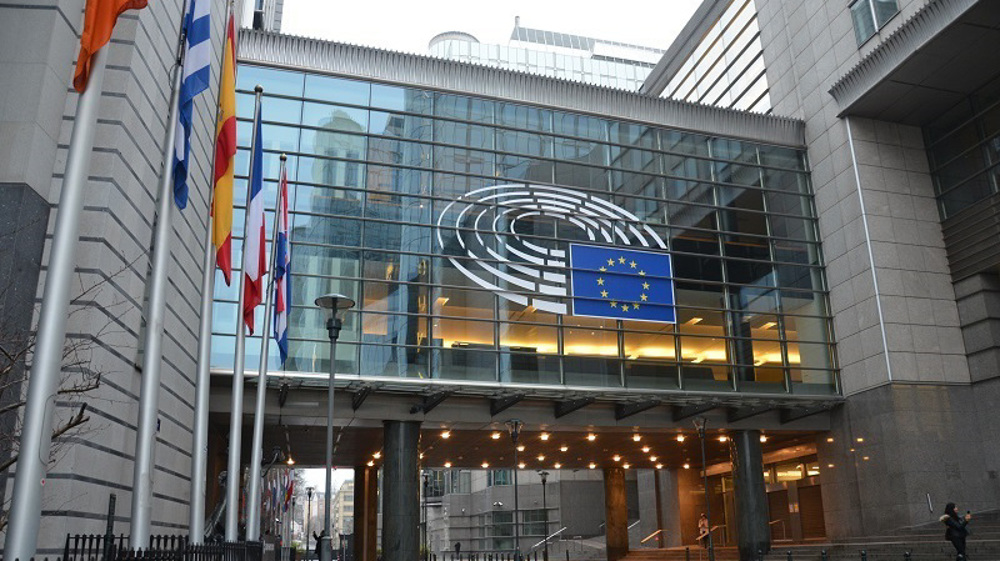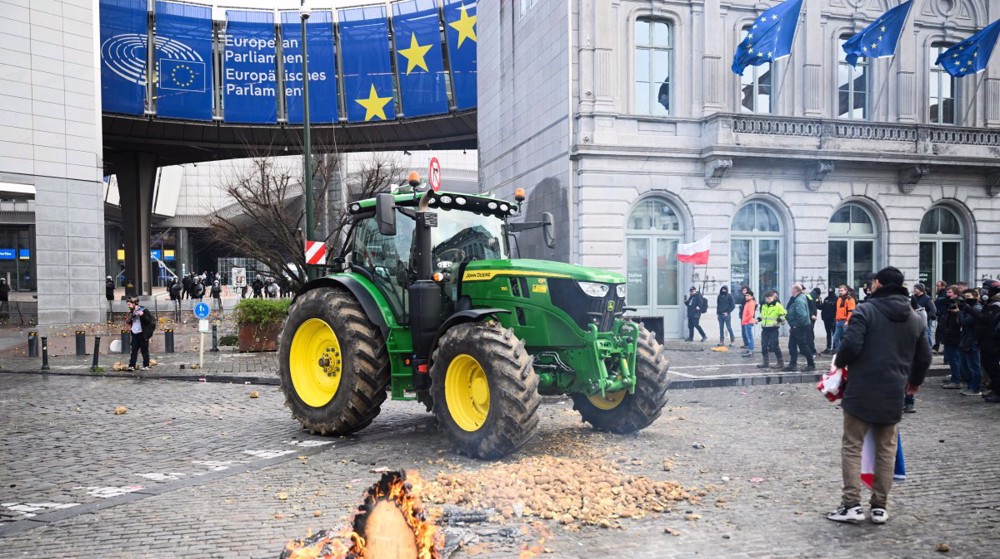Spain’s Podemos joins rival leftist party for June vote
Two leftist Spanish parties say they have reached a preliminary agreement to join forces in a coalition ahead of the upcoming general elections in the country.
Anti-austerity Podemos Party and its rival, Izquierda Unida (United Left or IU) agreed to create a joint list for the June 26 vote in a “serious coalition which will run to win the elections,” Pablo Iglesias, the Podemos leader, said on Monday.
“This is something historic in Spain. We will have a political space created for different forces, forces which respect each other and walk united, and because of this strength we can win against the [People’s Party],” Iglesias added.
The deal would be put to a referendum among party members in the coming weeks.
Observers and opinion polls say the alliance would boost the chances for both parties to secure more votes and parliamentary seats than center-left Socialists.
According to an official survey released late on Friday, Podemos was losing support before the upcoming election. It suggested that an alliance with United Left, would leave the two parties about 23 percent of the votes, making them the main left-wing force.
However, the conservative ruling People’s Party, led by acting Prime Minister Mariano Rajoy, is expected to win the ballot with around 27 percent of the vote, but it would still be short of an overall majority.
Spanish political parties missed a deadline to form a new government last Monday, prompting King Felipe VI to dissolve the parliament and set June 26 as the date for snap elections.

In the last general elections on December 20, 2015, no party won enough seats to form a government. The prime minister’s ruling party lost its parliamentary majority and won just 123 seats in the country’s 350-member lower house of parliament.
During the last four months, neither of the parties came to an agreement to form a coalition government and thus failed to agree on the country’s next prime minister. Since December, a caretaker government led by Rajoy has administered the country.
The Friday survey, however, indicated that voters are still not inclined to revert to the two-party system that dominated Spanish politics for the past 40 years. The figures show they prefer to spread their votes among 10 different parties.
Other opinion polls suggest that the election would do little to resolve the political deadlock and could mean more months of political paralysis and possibly even more elections.
Ten million Persian manuscripts donated from India to institute in Iran
VIDEO | Press TV's news headlines
Iran says defense capabilities not open for negotiations
Senior Russian general killed in car bomb attack in Moscow: Investigators
Outrage in India’s bihar state after politician pulls down woman’s hijab
Two Palestine Action hunger strikers hospitalized amid rising health concerns
US weighs sanctions against Spanish ships over blocked arms shipment to Israel
Medicine shortages in Gaza reach alarming levels amid Israeli siege: Health ministry













 This makes it easy to access the Press TV website
This makes it easy to access the Press TV website